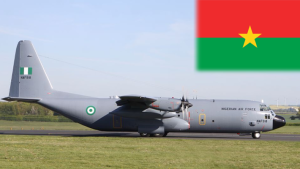23 June 2025, Jerusalem – The Israeli Air Force (IAF) has conducted extensive military operations targeting Islamic Revolutionary Guard Corps (IRGC) facilities across Iran, including in the capital, Tehran, according to a press briefing by Lieutenant Colonel Nadav Shoshani, an Israeli military spokesman. The strikes, which began on 12 June, mark a significant escalation in Israel’s campaign against Iran’s nuclear and ballistic missile programmes, as well as its air force capabilities.
The operation, conducted over 1,000 miles from Israeli territory, faced formidable challenges due to Iran’s robust air defence systems. Shoshani detailed how the IAF’s initial efforts focused on neutralising these defences, achieving aerial superiority from western Iran to Tehran within 36 hours. “Our Air Force has dealt a significant blow to the Iranian Air Force,” said Brigadier General Effie Defrin, IDF Spokesperson, in a press conference. A key strike targeted Amir Ali Hajizadeh, commander of the IRGC Air Force, described as a pivotal figure in Iran’s regional military activities.
On 22 June, the IAF struck six Iranian military airports, located up to 2,300 kilometres from Tel Aviv, targeting runways, underground hangars, refuelling aircraft, and various military jets, including F-14s, F-5s, and AH-1 helicopters. These strikes severely impaired Iran’s ability to operate its air force from these bases. Earlier, on 18 June, five AH-1 attack helicopters were destroyed at a base in Kermanshah.
In a significant development, over 50 IAF fighter jets conducted precision strikes in Tehran just hours before the briefing. The targets included military command centres, missile and radar production sites, and missile storage facilities. Acting on intelligence from the IDF Intelligence Directorate, the IAF also struck access roads to Iran’s Fordow nuclear enrichment site, aiming to restrict access to the facility. These strikes are part of Israel’s ongoing efforts to dismantle Iran’s military nuclear capabilities.
Israel’s multi-layered defence strategy was also highlighted. Shoshani revealed that the Spectrum Warfare 5114th Battalion, part of the J6 and Cyber Defense Directorate, successfully neutralised dozens of hostile unmanned aerial vehicles (UAVs) using advanced electronic warfare techniques over recent days. “Every UAV we manage to stop helps protect our civilians, our residents, and our strategic assets,” the battalion’s commander stated.
The strikes represent a bold assertion of Israel’s military reach and its determination to counter Iran’s nuclear ambitions and regional influence. However, they also risk further destabilising an already volatile region, with potential repercussions for global security. The Israeli military has pledged to continue its operations to maintain aerial superiority and protect its citizens.






